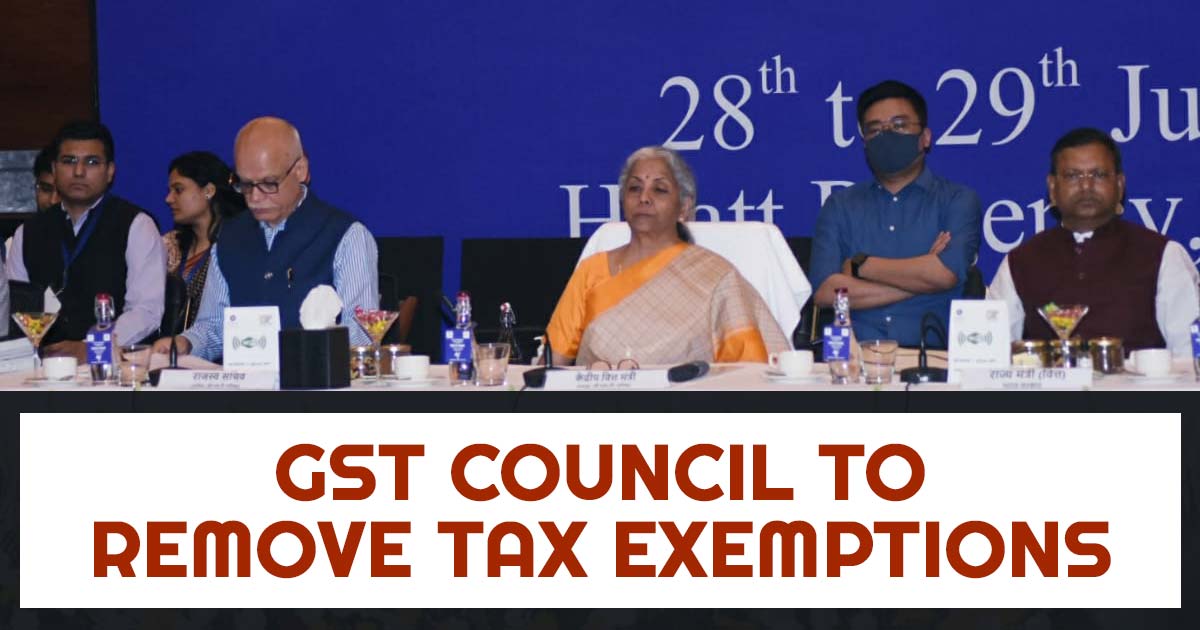
The GST official has decided to rectify various tax rates and withdraw the tax exemptions, excluding building a series of amendments to the enrollment and GST refund process to increase the collections of revenue.
On the second and the final day of the 47th GST meeting, the officials would see into the demand from the states, along with Kerala and Delhi, to prolong the GST compensation after June.
The council which is ruled by Union finance minister Nirmala Sitharaman has accepted the reports of three ministerial committees which see the GST rate rationalization, system reforms, and transportation of gold and precious stones correspondingly and adopted them with no amendments, three officials members mentioned on the condition of anonymity.
For the suggestions that would be accepted the centre would provide the GST notifications and rule the amendments as required by another member specified.
As per the suggestions of the Bommai Panel, which was cleared on Tuesday, a 12% GST rate shall be applied to the hotel accommodation cost of less than Rs 1000 per night and a 5% GST upon the hospital rooms when the rent exceeds Rs 5000 per day. No GST on the same services is being levied. Indeed the unbranded things like flour and rice would draw a 5% GST if they are pre-packaged and labelled.
At the present time, the branded versions of these items would draw a 5% GST and various companies sell the pre-packaged and labelled items without enrolling their brand to prevent the tax.
The same panel suggested raising the GST rate from 12 to 18 per cent on the things such as printing, writing, and drawing ink, certain knives, spoons and tableware, dairy machinery, LED lamps, and drawing instruments. Moreover, a rise in the GST rate from 5 to 12 percent is expected for the solar water heater and finished leather.
The Bommai panel’s term would be prolonged to submit its last recommendations on the change of rate concerning the items like the consumer goods that would be postponed because of rising inflation. The official indeed unanimously choose the suggested the ministerial panel led by Maharashtra deputy chief minister Ajit Pawar whose purpose is to strike at the source of tax evasion. The idea would provide that the fake entities should not obtain GST enrollment, remove the bogus and non-compliant enrollment and check the bogus invoicing. The precise step consists of biometric verification of those in the high-risk class during asking for GST registration and the real-time validation of bank accounts towards the tax refunds.
All these efforts are anticipated to move a long way in preventing the rise of entities that deal in the bogus invoices and evade the taxes.
Below is the official’s decision to accept the committee’s suggestion on the gold and precious stones led by Kerala finance minister K.N. Balagopal, states would be free to mention a limit for the essential GST e-way bill generation for the movement of gold and precious stones. The states would secure the freedom to set this limit. The action seems to make the gold trade much more transparent.








